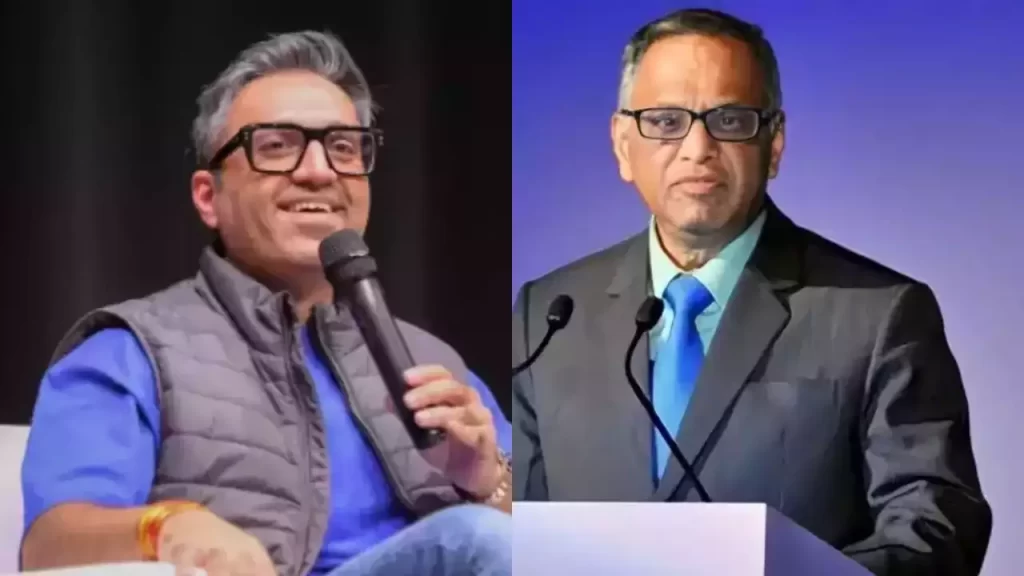The argument over productivity and working hours is still hotly debated in a society that never sleeps. The co-founder of Infosys, Narayana Murthy, has been the latest spark to ignite this continuing debate. He started a heated debate by advocating for young IT workers to accept a demanding 70-hour workweek. Although there were a variety of reactions to this proposition, Ashneer Grover, the co-founder of BharatPe, added his voice and provided a distinct viewpoint.
Undoubtedly, Narayana Murthy’s declaration supporting a seventy-hour week caused a stir among Indian workers. Many were split by his claim that longer workdays are the solution to improving India’s declining productivity. While some praised it as an essential step towards advancement, others thought it was a tiresome and unreasonable requirement.
Ashneer Grover, a well-known public speaker, added his voice to the clamour debating this divisive topic. But his viewpoint was different from the popular one. Grover said that the controversy around Murthy’s proposal stems from the ongoing obsession with hourly labour metrics rather than results. This viewpoint brings an important new dimension to the current discussion, emphasising the need to turn the focus to output and outcomes.

Grover questions the traditional view of labour by arguing that the emphasis should be on results rather than hours worked. He pushes for a change in how success is measured, from just tracking hours at work to basing it on outcomes. Many people who contend that productivity ought to be the main indicator of one’s contributions to the workplace find resonance in this position.
Grover explores the idea that the younger generation is lazy as well in his remarks. He notes that there’s a common belief that India’s growth is being impeded by the laziness of its young. In doing so, he exposes a widespread misconception that is often accepted without question. It’s important to work more efficiently and accomplish more in less time rather than just putting in more hours.
Grover touches on several fascinating points, one of which is the unification that results from group unhappiness. He notes that if someone offends you, it may bring people together more than things like sports, religion, caste, or language. This viewpoint highlights the influence of consensus and the possibility of societal change that results from people voicing their disagreement with a prevalent problem.
Ashneer Grover Reacts To Narayan Murthy’s 70-Hours-A-Week Work Time Suggestion
I think junta got offended here because work is still being measured in ‘hours’ than ‘outcome’. The other thing is people feeling as if youngster’s laziness is only thing keeping India from becoming developed.
Funny – getting offended unites us more than cricket, religion,… https://t.co/hAai4UOgwU
— Ashneer Grover (@Ashneer_Grover) October 27, 2023
I think junta got offended here because work is still being measured in ‘hours’ than ‘outcome’. The other thing is people feeling as if youngster’s laziness is only thing keeping India from becoming developed.
Funny – getting offended unites us more than cricket, religion,… https://t.co/hAai4UOgwU
— Ashneer Grover (@Ashneer_Grover) October 27, 2023
